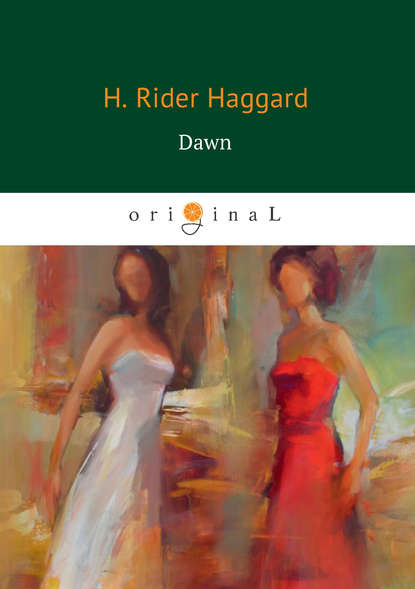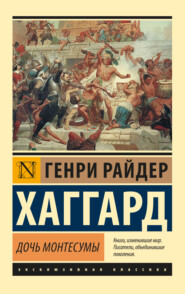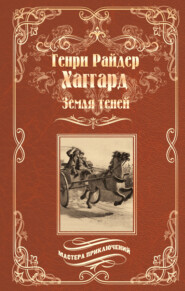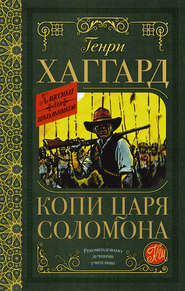По всем вопросам обращайтесь на: info@litportal.ru
(©) 2003-2025.
✖
Dawn
Настройки чтения
Размер шрифта
Высота строк
Поля
"He lies!” broke in Philip, sullenly.
"You will wonder, sir,” went on the blood-stained George, "how I allowed myself to be drawn into such a brutal affair, and one so discreditable to your house. I can only say that I am very sorry,”—which indeed he was —”and that I should never have taken any notice of his words— knowing that he would regret them on reflection—had he not in an unguarded moment allowed himself to taunt me with my birth. Uncle, you know the misfortune of my father’s marriage, and that she was not his equal in birth, but you know too that she was my mother and I love her memory though I never saw her, and I could not bear to hear her spoken of like that, and I struck him. I hope that both you and he will forgive me; I cannot say any more.”
"He lies again, he cannot speak the truth.”
"Philip, will you allow me to point out,” remarked his father in his blandest voice, "that the continued repetition of the very ugly word ‘lie’ is neither narrative nor argument. Perhaps you will be so kind as to tell me your side of the story; you know I always wish to be perfectly impartial.”
"He lied to you this morning about the money. It’s true enough that I gambled away the ten pounds at Roxham fair, instead of paying it into the bank as you told me, but he persuaded me to it, and he was to have shared the profits if we won. I was a blackguard, but he was a bigger blackguard; why should I have all the blame and have that fellow continually shoved down my throat as a saint? And so I thrashed him, and that is all about it.”
"Sir, I am sorry to contradict Philip, but indeed he is in error; the recollection of what took place has escaped him. I could, if necessary, bring forward evidence—Mr. Bellamy—”
"There is no need, George, for you to continue,” and then, fixing his glittering eye on Philip: "it is very melancholy for me, having only one son, to know him to be such a brute, such a bearer of false witness, such an impostor as you are. Do you know that I have just seen Mr. Bellamy, the head clerk at the bank, and inquired if he knew anything of what happened about that ten pounds, and do you know what he told me?”
"No, I don’t, and I don’t want to.”
"But I really must beg your attention: he told me that the day following the fair your cousin George came to the bank with ten pounds, and told him how you had spent the ten pounds I gave you to pay in, and that he brought the money, his own savings, to replace what you had gambled away; and Bellamy added that, under all the circumstances, he did not feel justified in placing it to my credit. What have you to say to that?”
"What have I to say? I have to say that I don’t believe a word of it. If George had meant to do me a good turn he would have paid the money in and said nothing to Bellamy about it. Why won’t you trust me a little more, father? I tell you that you are turning me into a scoundrel. I am being twisted up into a net of lies till I am obliged to lie myself to keep clear of ruin. I know what this sneak is at; he wants to work you into cutting me out of the property which should be mine by right. He knows your weaknesses—”
"My weaknesses, sir—my weaknesses!” thundered his father, striking his gold-headed cane on to the stones; "what do you mean by that?”
"Hush, uncle, he meant nothing,” broke in George.
"Meant nothing! Then for an idle speech it is one that may cost him dear. Look you here, Philip Caresfoot, I know very well that our family has been quite as remarkable for its vices as its virtues, but for the last two hundred and fifty years we have been gentlemen, and you are not a gentleman; we have not been thieves, and you have proved yourself a thief; we have spoken the truth, and you are, what you are so fond of calling your cousin, who is worth two of you, a liar. Now listen. However imperious I may have grown in my old age, I can still respect the man who thwarts me even though I hate him; but I despise the man who deceives me, as I despise you, my dear son Philip— and I tell you this, and I beg you to lay it to heart, that if ever again I find that you have deceived me, by Heaven I will disinherit you in favour of —oh, oh!” and the old man fell back against the grey wall, pressing his hands to his breast and with the cold perspiration starting on to his pallid countenance.
Both the lads sprang forward, but before they reached him he had recovered himself.
"It is nothing,” he said, in his ordinary gentle voice, "a trifling indisposition. I wish you both good morning, and beg you to bear my words in mind.”
When he was fairly gone, George came up to his cousin and laid his hand upon his arm.
"Why do you insist upon quarrelling with me, Philip? it always ends like this, you always get the worst of it.”
But Philip’s only reply was to shake him roughly off, and to vanish through the door towards the lake. George regarded his departing form with a peculiar smile, which was rendered even more peculiar by the distortion of his swollen features.
Chapter II
It is difficult to imagine any study that would prove more fascinating in itself or more instructive in its issues, than the examination of the leading characteristics of individual families as displayed through a series of generations. But it is a subject that from its very nature is more or less unapproachable, since it is but little that we know even of our immediate ancestors. Occasionally in glancing at the cracking squares of canvas, many of which cannot even boast a name, but which alone remain to speak of the real and active life, the joys and griefs, the sins and virtues that centred in the originals of those hard daubs and of ourselves, we may light upon a face that about six generations since was the counterpart of the little boy upon our shoulder, or the daughter standing at our side. In the same way, too, partly through tradition and partly by other means, we are sometimes able to trace in ourselves and in our children the strong development of characteristics that distinguished the race centuries ago.
If local tradition and such records of their individual lives as remained are worthy of any faith, it is beyond a doubt that the Caresfoots of Bratham Abbey had handed down their own hard and peculiar cast of character from father to son unaffected in the main by the continual introduction of alien blood on the side of the mother.
The history of the Caresfoot family had nothing remarkable about it. They had been yeomen at Bratham from time immemorial, perhaps ever since the village had become a geographical fact; but it was on the dissolution of the monasteries that they first became of any importance in the county. Bratham Abbey, which had shared the common fate, was granted by Henry VIII. to a certain courtier, Sir Charles Varry by name. For two years the owner never came near his new possession, but one day he appeared in the village, and riding to the house of Farmer Caresfoot, which was its most respectable tenement, he begged him to show him the Abbey house and the lands attached. It was a dark November afternoon, and by the time the farmer and his wearied guest had crossed the soaked lands and reached the great grey house, the damps and shadows of the night had begun to curtain it and to render its appearance, forsaken as it was, inexpressibly dreary and lonesome.
"Damp here, my friend, is it not?” said Sir Charles with a shudder, looking towards the lake, into which the rain was splashing.
"You are right, it be.”
"And lonely too, now that the old monks have gone.”
"Ay, but they do say that the house be mostly full of the spirits of the dead,” and the yeoman sank his voice to an awed whisper.
Sir Charles crossed himself and muttered, "I can well believe it,” and then, addressing his companion—
"You do not know of any man who would buy an abbey with all its rights and franchises, do you, friend?”
"Not rightly, sir; the land be so poor it hath no heart in it; it doth scarce repay the tillage, and what the house is you may see. The curse of the monks is on it. But still, sir, if you have a mind to be rid of the place, I have a little laid by and a natural love for the land, having been bred on it, and taken the colour of my mind and my stubby growth therefrom, and I will give you—” and this astutest of all the Caresfoots whispered a very small sum into Sir Charles’ ear.
"Your price is very small, good friend, it doth almost vanish into nothing; and methinks the land that reared you cannot be so unkind as you would have me think. The monks did not love bad land, but yet, if thou hast it in the gold, I will take it; it will pay off a debt or two, and I care not for the burden of the land.”
And so Farmer Caresfoot became the lawful owner of Bratham Abbey with its two advowsons, its royal franchises of treasure-trove and deodand, and more than a thousand acres of the best land in Marlshire.
The same astuteness that had enabled this wise progenitor to acquire the estate enabled his descendants to stick tightly to it, and though, like other families, they had at times met with reverses, they never lost their grip of the Abbey property. During the course of the first half of the nineteenth century the land increased largely in value, and its acreage was considerably added to by the father of the present owner, a man of frugal mind, but with the family mania for the collection of all sorts of plate strongly developed. But it was Philip’s father, "Devil Caresfoot,” who had, during his fifty years’ tenure of the property, raised the family to its present opulent condition, firstly, by a strict attention to business and the large accumulations resulting from his practice of always living upon half his income, and secondly, by his marriage late in middle life with Miss Bland, the heiress of the neighbouring Isleworth estates, that stretched over some two thousand acres of land.
This lady, who was Philip’s mother, did not live long to enjoy her wealth and station. Her husband never spoke a rough word to her, and yet it is no exaggeration to say that she died of fear of him. The marriage had been one of convenience, not of affection; indeed poor Anna Bland had secretly admired the curate at Isleworth, and hated Mr. Caresfoot and his glittering eye. But she married him for all that, to feel that till she died that glance was always playing round her like a rapier in the hands of a skilled fencer. And very soon she did die, Mr. Caresfoot receiving her last words and wishes with the same exquisite and unmoved politeness that he had extended to every remark she had made to him in the course of their married life. Having satisfactorily eyed Mrs. Caresfoot off into a better world, her husband gave up all idea of further matrimonial ventures, and set himself to heap up riches. But a little before his wife’s death, and just after his son’s birth, an event had occurred in the family that had disturbed him not a little.
His father had left two sons, himself and a brother, many years his junior. Now this brother was very dear to Mr. Caresfoot; his affection for him was the one weak point in his armour; nor was it rendered any the less sincere, but rather the more touching, by the fact that its object was little better than half-witted. It is therefore easy to imagine his distress and anger when he heard that a woman who had till shortly before been kitchen-maid at the Abbey House, and was now living in the village, had been confined of a son which she fixed upon his brother, whose wife she declared herself to be. Investigation only brought out the truth of the story; his weak-minded brother had been entrapped into a glaring mesalliance.
But Mr. Caresfoot proved himself equal to the occasion. So soon as his "sister-in-law,” as it pleased him to call her sardonically, had sufficiently recovered, he called upon her. What took place at the visit never transpired, but next day Mrs. E. Caresfoot left her native place never to return, the child remaining with the father, or rather with the uncle. That boy was George. At the time when this story opens both his parents were dead: his father from illness resulting from entire failure of brain power, the mother from drink.
Whether it was that he considered the circumstance of the lad’s birth entitled him to peculiar consideration, or that he transferred to him the affection he bore his father, the result was that his nephew was quite as dear if not even dearer to Mr. Caresfoot than his own son. Not, however, that he allowed his preference to be apparent, save in the negative way that he was blind to faults in George that he was sufficiently quick to note in Philip. To observers this partiality seemed the more strange when they thought upon Philip’s bonny face and form, and then noted how the weak-brained father and coarse-blooded mother had left their mark in George’s thick lips, small, restless eyes, pallid complexion, and loose-jointed form.
When Philip shook off his cousin’s grasp and vanished towards the lake, he did so with bitter wrath and hatred in his heart, for he saw but too clearly that he had deeply injured himself in his father’s estimation, and, what was more, he felt that so much as he had sunk his side of the balance, by so much he had raised up that of George. He was inculpated; a Bellamy came upon the scene to save George, and, what was worse, an untruthful Bellamy; he was the aggressor, and George the meek in spirit with the soft answer that turneth away wrath. It was intolerable; he hated his father, he hated George. There was no justice in the world, and he had not wit to play rogue with such a one as his cousin. Appearances were always against him; he hated everybody.
And then he began to think that there was in the very next parish somebody whom he did not hate, but who, on the contrary, interested him, and was always ready to listen to his troubles, and he also became aware of the fact that whilst his mind had been thinking his legs had been walking, and that he was very near the abode of that person—almost at its gates, in short. He paused and looked at his watch; it had stopped at half-past eleven, the one blow that George had succeeded in planting upon him having landed on it, to the great detriment of both the watch and the striker’s knuckles; but the sun told him that it was about half-past twelve, not too early to call. So he opened the gate, and, advancing up an avenue of old beeches to a square, red- brick house of the time of Queen Anne, boldly rang the bell.
Was Miss Lee at home? Yes, Miss Lee was in the greenhouse; perhaps Mr. Philip would step into the garden, which Mr. Philip did accordingly.
"How do you do, Philip? I’m delighted to see you; you’ve just come in time to help in the slaughter.”
"Slaughter, slaughter of what—a pig?”
"No, green fly. I’m going to kill thousands.”
"You cruel girl.”
"I daresay it is cruel, but I don’t care. Grumps always said that I had no heart, and, so far as green fly are concerned, Grumps was certainly right. Now, just look at this lily. It is an auratum. I gave three-and-six (out of my own money) for that bulb last autumn, and now the bloom is not worth twopence, all through green fly. If I were a man I declare I should swear. Please swear for me, Philip. Go outside and do it, so that I mayn’t have it on my conscience. But now for vengeance. Oh, I say, I forgot, you know, I suppose. I ought to be looking very sorry—”
"Why, what’s the matter? Any one dead?”
"Oh, no, so much better than that. It’s got Grumps.”
"Got her, what has got her? What is ‘it’?”
"Why, Chancery, of course. I always call Chancery ‘it.’ I wouldn’t take its name in vain for worlds. I am too much afraid. I might be made to ‘show a cause why,’ and then be locked up for contempt, which frequently happens after you have tried to ‘show a cause.’ That is what has happened to Grumps. She is now showing a cause; shortly she will be locked up. When she comes out, if she ever does come out, I think that she will avoid wards in Chancery in future; she will have too much sympathy with them, and too much practical experience of their position.”
"But what on earth do you mean, Maria? What has happened to Miss Gregson?” (anglice Grumps).
"Well, you remember one of my guardians, or rather his wife, got ‘it’ to appoint her my chaperon, but my other guardian wanted to appoint somebody else, and after taking eighteen months to do it, he has moved the court to show that Grumps is not a ‘fit and proper person.’ The idea of calling Grumps improper. She nearly fainted at it, and swore that, whether she lived through it or whether she didn’t, she would never come within a mile of me or any other ward if she could help it, not even the ward of an hospital. I told her to be careful, or she would be ‘committing contempt,’ which frightened her so that she hardly spoke again till she left yesterday. Poor Grumps! I expect she is on bread and water now; but if she makes herself half as disagreeable to the Vice- Chancellor as she did to me, I don’t believe that they will keep her long. She’ll wear the gaolers out; she will wear the walls out; she will wear ‘it’ down to the bone; and then they will let her loose upon the world again. Why, there is the bell for lunch, and not a single green fly the less! Never mind, I will do for them to-morrow. How it would add to her sufferings in her lonely cell if she could see us going to a tete-a-tete lunch. Come on, Philip, come quick, or the cutlets will get cold, and I hate cold cutlets.” And off she tripped, followed by the laughing Philip, who, by the way, was now looking quite handsome again.

















